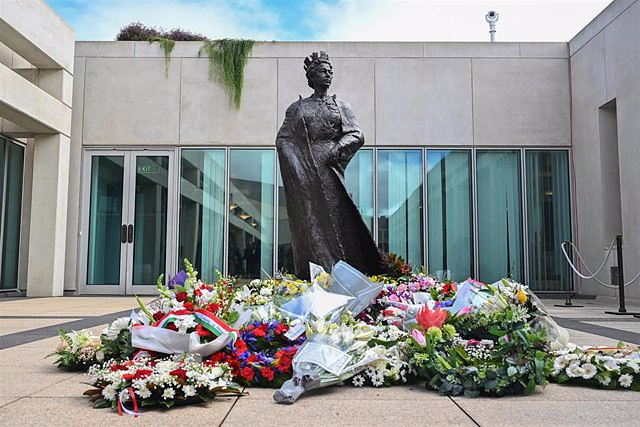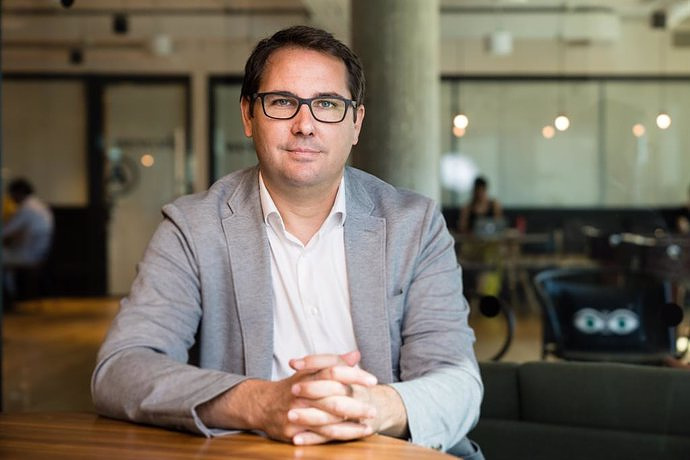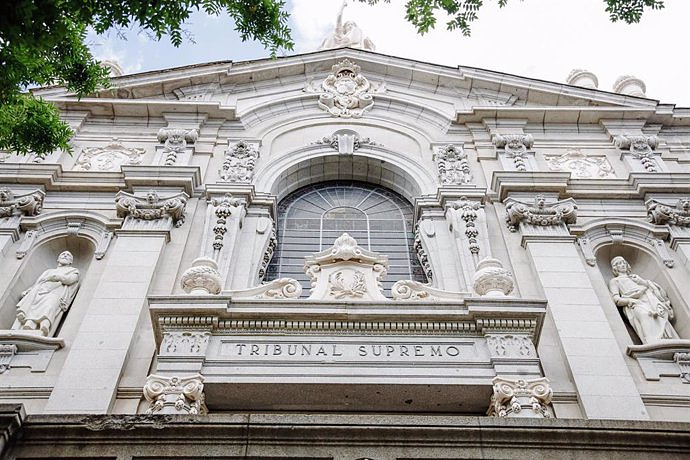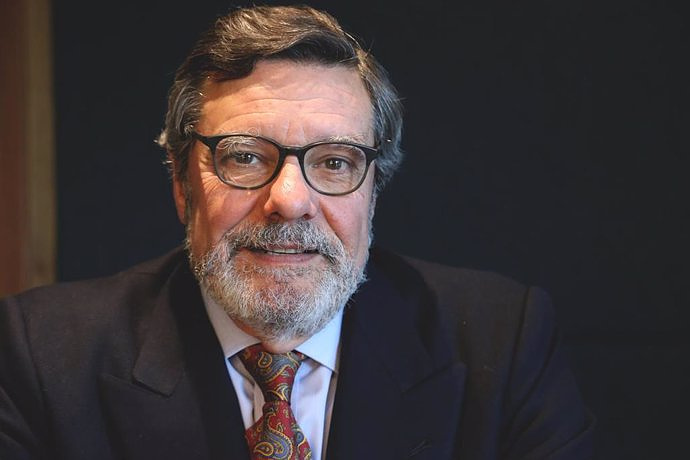MADRID, 12 Sep. (EUROPA PRESS) -
After the death of Queen Elizabeth II, the group of 54 nations with British ties, known as the Commonwealth, faces an uncertain future after some of the countries that comprise it have hinted at the possibility of raising a republican future, outside from the fringes of the British monarchy.
Founded at the end of 1926, the Commonwealth seeks to promote political and economic cooperation although, since the middle of the last century, belonging to it does not mean that the member countries must pay homage to the British monarch.
Although under the long reign of Elizabeth II the organization has seemed to enjoy a certain stability -despite the recent rupture of Barbados-, after the death of the monarch some nations have opened the possibility of leaving the Commonwealth.
Thus, countries such as Antigua and Barbuda or New Zealand have left, to a greater or lesser extent, the door open to republicanism, thus following in the footsteps of Barbados, which in November 2021 withdrew recognition of Elizabeth II as head of state in an act that was attended by Carlos III, then Prince of Wales and heir to the British monarchy.
Now, after the historic death of the everlasting Elizabeth II, the Prime Minister of Antigua and Barbuda, Gaston Browne, has announced that he will call a referendum to determine the future sovereign of the Caribbean archipelago, a British colony until 1981.
According to Prime Minister Browne, this step should not be interpreted as "an act of hostility", but is necessary to "complete that circle of independence" and "guarantee" the nation's sovereignty.
Joining Antigua and Barbuda, the Prime Minister of New Zealand, Jacinda Ardern, has left the door open for the oceanic country to disengage from the British monarchy and, although she has predicted that it will not be "a short-term measure", it will he considers that he will see this change before he dies.
"I've made my point clear many times. I think (independence) is where New Zealand is going in the future. It's likely to happen in my lifetime, but don't look at it as a short-term measure or anything." to be on the agenda in the short term," said Ardern.
For his part, the Prime Minister of Australia, Anthony Albanese, leader of another of the great countries that make up the Commonwealth, has acknowledged that "now is not the time to speak" regarding the possible departure of the group, and has recalled that Isabel II always "respected the self-determination of the Australian people".
Meanwhile in Canada, although demographic studies show a certain pro-independence will, Prime Minister Justin Trudeau seems to leave this issue off his political agenda, even more so considering that, at the constitutional level, to approve any change in this regard, the support of unanimous vote of all the provincial legislatures.
The Jamaican authorities seem to be more determined, because although in recent days they have not ruled on the matter, there is a historic desire for independence on the Caribbean island recognized by the Prime Minister, Andrew Holness, last March.
Along the same lines, in Saint Vincent and the Grenadines, in the past there have been demonstrations against the monarchy and its head of government, Ralph Gonsalves, proposed in July to hold a referendum, although he recognized that this could only be carried out out following an agreement with supporters to remain part of the Commonwealth.
On another level are countries such as the Bahamas, Belize, Granada, Saint Kitts and Nevis or Saint Lucia, where there are also independence movements although they have not been reactivated in recent times, not even after the death of Elizabeth II.
Thus, the future of the Commonwealth is emerging as one of the great challenges that Charles III will have to face, who, after years of waiting to take the baton, already in his first speech as king endorsed "the deep personal commitment" of his mother with the group of nations.

 Exploring Cardano: Inner Workings and Advantages of this Cryptocurrency
Exploring Cardano: Inner Workings and Advantages of this Cryptocurrency Seville.- Economy.- Innova.- STSA inaugurates its new painting and sealing hangar in San Pablo, for 18 million
Seville.- Economy.- Innova.- STSA inaugurates its new painting and sealing hangar in San Pablo, for 18 million Innova.- More than 300 volunteers join the Andalucía Compromiso Digital network in one month to facilitate access to ICT
Innova.- More than 300 volunteers join the Andalucía Compromiso Digital network in one month to facilitate access to ICT Innova.-AMP.- Ayesa acquires 51% of Sadiel, which will create new technological engineering products and expand markets
Innova.-AMP.- Ayesa acquires 51% of Sadiel, which will create new technological engineering products and expand markets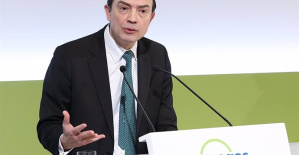 Enagás earns 65.3 million in the first quarter, 19.5% more, and aims to achieve its annual objectives
Enagás earns 65.3 million in the first quarter, 19.5% more, and aims to achieve its annual objectives The Talía celebrate the Spanish performing arts with some allusion to sexual violence after the Ramón Paso case
The Talía celebrate the Spanish performing arts with some allusion to sexual violence after the Ramón Paso case IU will go with Sumar to the European elections but freezes for now the organic relationship with Díaz's party
IU will go with Sumar to the European elections but freezes for now the organic relationship with Díaz's party RELEASE: FirstElement Fuel is selected as one of the 40 best GreenTech companies in the United States
RELEASE: FirstElement Fuel is selected as one of the 40 best GreenTech companies in the United States How Blockchain in being used to shape the future
How Blockchain in being used to shape the future Not just BTC and ETH: Here Are Some More Interesting Coins Worth Focusing on
Not just BTC and ETH: Here Are Some More Interesting Coins Worth Focusing on Looking for video games that value the neighborhoods of Valencia
Looking for video games that value the neighborhoods of Valencia UPV researchers improve the efficiency of air conditioning systems using a geothermal heat pump
UPV researchers improve the efficiency of air conditioning systems using a geothermal heat pump València is committed to citiverse and smart tourism to be "the reference technological hub of the Mediterranean"
València is committed to citiverse and smart tourism to be "the reference technological hub of the Mediterranean" Valencia displays its "innovative and technological potential" at the Emerge Americas event in Miami
Valencia displays its "innovative and technological potential" at the Emerge Americas event in Miami A million people demonstrate in France against Macron's pension reform
A million people demonstrate in France against Macron's pension reform Russia launches several missiles against "critical infrastructure" in the city of Zaporizhia
Russia launches several missiles against "critical infrastructure" in the city of Zaporizhia A "procession" remembers the dead of the Calabria shipwreck as bodies continue to wash up on the shore
A "procession" remembers the dead of the Calabria shipwreck as bodies continue to wash up on the shore Prison sentences handed down for three prominent Hong Kong pro-democracy activists
Prison sentences handed down for three prominent Hong Kong pro-democracy activists ETH continues to leave trading platforms, Ethereum balance on exchanges lowest in 3 years
ETH continues to leave trading platforms, Ethereum balance on exchanges lowest in 3 years Investors invest $450 million in Consensys, Ethereum incubator now valued at $7 billion
Investors invest $450 million in Consensys, Ethereum incubator now valued at $7 billion Alchemy Integrates Ethereum L2 Product Starknet to Enhance Web3 Scalability at a Price 100x Lower Than L1 Fees
Alchemy Integrates Ethereum L2 Product Starknet to Enhance Web3 Scalability at a Price 100x Lower Than L1 Fees Mining Report: Bitcoin's Electricity Consumption Declines by 25% in Q1 2022
Mining Report: Bitcoin's Electricity Consumption Declines by 25% in Q1 2022 Oil-to-Bitcoin Mining Firm Crusoe Energy Systems Raised $505 Million
Oil-to-Bitcoin Mining Firm Crusoe Energy Systems Raised $505 Million Microbt reveals the latest Bitcoin mining rigs -- Machines produce up to 126 TH/s with custom 5nm chip design
Microbt reveals the latest Bitcoin mining rigs -- Machines produce up to 126 TH/s with custom 5nm chip design Bitcoin's Mining Difficulty Hits a Lifetime High, With More Than 90% of BTC Supply Issued
Bitcoin's Mining Difficulty Hits a Lifetime High, With More Than 90% of BTC Supply Issued The Biggest Movers are Near, EOS, and RUNE during Friday's Selloff
The Biggest Movers are Near, EOS, and RUNE during Friday's Selloff Global Markets Spooked by a Hawkish Fed and Covid, Stocks and Crypto Gain After Musk Buys Twitter
Global Markets Spooked by a Hawkish Fed and Covid, Stocks and Crypto Gain After Musk Buys Twitter Bitso to offset carbon emissions from the Trading Platform's ERC20, ETH, and BTC Transactions
Bitso to offset carbon emissions from the Trading Platform's ERC20, ETH, and BTC Transactions Draftkings Announces 2022 College Hoops NFT Selection for March Madness
Draftkings Announces 2022 College Hoops NFT Selection for March Madness